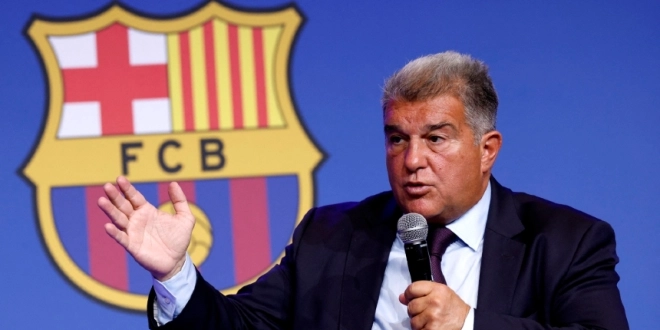Barcelona’s president, Joan Laporta, announced on Friday that a European Super League could potentially launch as early as next season. He expressed indifference towards the participation of English clubs, stating that they already have their own Super League in the form of the Premier League.
This follows the failed attempt to establish a Super League in 2021 by Barcelona and Real Madrid, which faced severe backlash from fans and institutions, leading to the withdrawal of other involved clubs. Despite this, in December, the European Union’s Court of Justice ruled that FIFA and UEFA’s attempts to block the league violated competition law. Consequently, A22 Sports Management, the promoters of the Super League, proposed a new 64-team competition as a rival or alternative to UEFA’s Champions League.
Laporta, speaking to RAC1 radio station, mentioned the possibility of the league starting with just 16 teams and envisioned a gradual expansion, similar to the growth of the European Cup since 1955.
Laporta suggested several clubs that might join the league, including Inter Milan, AC Milan, Roma, Napoli, Porto, Sporting Lisbon, Benfica, Ajax, Feyenoord, PSV Eindhoven, Marseille, Club Brugge, and Anderlecht. However, he acknowledged that Bayern Munich and Paris Saint-Germain, who have opposed the Super League idea, would not be part of it.
Following these comments, several clubs named by Laporta began distancing themselves from the Super League project. AS Roma formally stated its disinterest, and a source close to Inter Milan dismissed their involvement as a baseless rumor. Champions League runners-up, in a statement, emphasized the importance of collaboration with UEFA and FIFA, along with the European Club Association (ECA). Marseille’s spokesman, reiterating club president Pablo Longoria’s previous statements, rejected the idea of a closed league, emphasizing the importance of sporting meritocracy.
Laporta highlighted the financial benefits of the proposed Super League, mentioning that participation alone could guarantee a club at least 100 million euros, a sum not even awarded for winning the Champions League. This aspect underscores the Super League as a financial lifeline for clubs struggling with overspending.


